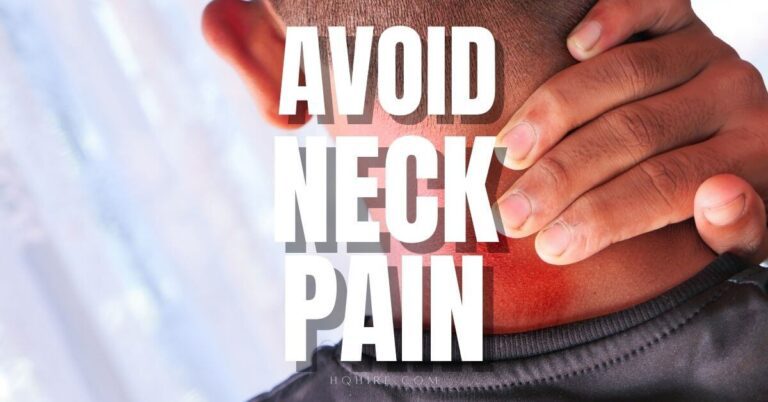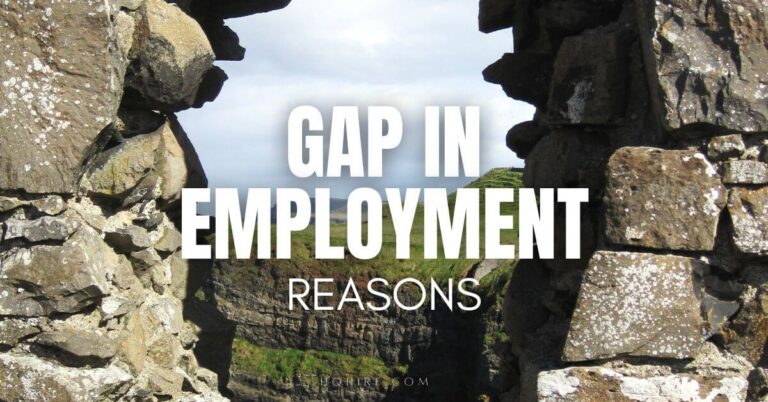Not sure if you should quit your job right now?
It doesn’t matter if you want to quit a job you’ve just started, or want to find a better job elsewhere.
If you know how to quit your job gracefully, resigning from your job won’t necessarily impact your future career.
Although, most people will want to play it safe and quit only after getting a new job.
Quitting your job without a new job can sometimes be a good decision for your health and career.
Here are a few common reasons you may consider quitting your job without another lined up.
Why It Is Ok To Quit Your Job Without A New Job
Quitting your job without a new job can be a wise choice. Resigning is never a bad decision if it makes you feel happier, healthier, and more aligned with your goals and values.
Here are some reasons why it is ok to quit your job without a new job lined up.
1. Starting your own business
While you can grow your business as a side hustle, some may want to focus solely on their new venture and start their own business.
Being an entrepreneur is not easy. Especially during the startup phase, many people will fail and go back to becoming an employee.
Nonetheless, starting your own business have huge upside potential in getting a higher income, gaining more freedom, and becoming wealthy.
When should I quit my job for my business?
You may consider quitting your job for your business when your business is able to generate an income that can rival your current salary.
Assuming you know what you are doing, and you have set up your business in a way that you have a high chance of succeeding long term, it is ok to quit your job and focus on your own business.
That being said, you’ll need to weigh your pros and cons carefully and prepare yourself financially and emotionally before quitting your job.
2. Going for higher studies
If given a choice, it is often easier to proceed with your higher studies immediately or soon after your graduation.
But sometimes you do not have an option.
You may need to earn money for your education and go for higher studies after you’ve started working for a period of time.
Leaving your job for relevant higher studies is always better for your career development.
Employees with higher education tend to find it easier to get promoted in their job and get higher pay in their job.
How do you resign for higher studies via message or email?
“Dear [Boss’s Name],
I am writing to inform you that I will be resigning from my role of _______(Your Job Role/Position/Designation).
I would like to give a notice period of [Period of notice/ Number of days per contract, or at least 2 week notice period], effective from today.
My last date will be on [Your Last Day of Work].
Thank you for everything and it is my pleasure to work with you and the team.”
3. Making a career change
Work flexibility, better career prospects, and higher job satisfaction are the main reasons why employees make a career change.
Making a career change will require you to gain additional qualifications before you can find jobs in your new desired career sector.
Thus, people who want to make a career change require a substantial time commitment to focus on their studies.
Quitting your job for full-time studies can reduce your stress and allow you to better focus on getting your new qualifications faster, which improves your chances of making a career change successfully.
With the right skills and qualifications, a change in your career often leads to better career prospects, professional development, and more satisfaction in your job.
4. Relocating to another city or country
If you are relocating to another city or country, it is understandable why you’ll need to quit your job.
Generally, people will choose to find a job in their desired city or country before relocation, but this is not always possible.
Circumstances where you may need to quit your job without another lined up when relocating.
- You may need to relocate on a predetermined date as you’ve sold your house or your rental contract ends.
- Your partner may have work in the new location, thus you’ll need to relocate before getting a new job.
- Getting a job is challenging, as you are too far away to attend the interviews.
During these circumstances, resigning from your job before finding another might be the best choice.
5. Commute time is too long
An overly long commute is a valid reason for quitting your job to seek employment closer to home.
Long commutes impact the work-life balance which is essential for the employee to be productive and healthy.
Understanding what is the reasonable time and distance for you to commute to work is essential when finding the right job.
When you spend more than 2 hours on your one-way commute to work, or from work, it might be a valid reason for you to quit before getting a new job.
6. Need a break from your work
Getting a break from your work can be a good reason to quit without another job. Sometimes, you may need time away from your work to give you the mental capacity to reconsider your options.
If you are unsure which direction your life should take, or feeling lost and unfulfilled, quitting your job can give you time to reassess your options.
Nonetheless, give your “break” a deadline.
7. Make time for your job search
Getting a new job often requires you to spend a large amount of time preparing your resume, and cover letter, and screening through thousands of job opportunities.
Quitting your job just to make time for your job search is not always recommended.
But if your current work requires a huge amount of time commitment, where you are not able to make time off business hours.
Quitting your job before finding a new job might be your only option.
8. Protect your mental health
Feeling burned out, overly stressed, and depressed can have lasting negative effects on your overall mental health.
These feelings can impact your job performance and your ability to perform during your job interview.
If your mental health is in danger, it might be wise to quit your job and find another job opportunity when you are ready.
9. Protect your physical health
Some jobs can be physically challenging, and if you are not physically prepared, it can cause injuries and even death.
As we age, it will make certain jobs that require a high level of physical strength challenging. i.e. firefighting, mining, agriculture, and construction.
Maybe it is time for you to resign, if:
- Your current job may affect your physical health.
- Your current physical health is not suitable for your current job.
10. Protect your relationship
Work-life balance is important, but not all jobs can give you a healthy balance between your work and your personal life.
You may feel that you are physically and psychologically able to perform well in your job, but your job may have a negative toll on your relationship with those who are most important to you.
Here are a few examples where your work may have a negative toll on your relationships.
- Working on shift.
- Working long hours in the office.
- Work requires you to work at home even after office hours.
- Work that does not allow you to take leave when required.
- Work requires you to be on call 24/7 even on your off days and non-working hours.
These work cultures or work arrangements will leave little time for you to nurture your relationships.
If you feel that your work life is badly impacting your personal life, quitting your job before getting another might be a wise way to protect your relationships.
11. Protect yourself from a dangerous work environment
According to the OSH Act, all workers have the right to a safe workplace.
The Occupational Safety and Health Act of 1970 (OSH Act) was passed to protect workers from being harmed at work, and the employer has a legal obligation to provide their employees with working conditions that are free of known dangers.
OSHA also protects workers from:
- Sexual harassment
- Physical harassment
- Workplace bullying
While reporting these problems can often resolve the issue, if the situation continues and you don’t feel safe working in your workplace, you may want to quit your job.
12. Protect your professional reputation
If you are suspecting there are illegal activities happening in your company, or your manager is asking you to do things that you are not comfortable with, you may want to quit your job even before you are able to find a new one.
Participating in illegal activities can be a criminal offense that leads to the destruction of your reputation and your ability to find a job in the future.
If your professional reputation is at stake, stay safe, and resign from the company immediately.
13. You are getting fired
If you know you are getting fired, it might be a good idea to resign before that happens.
It is often a red flag when your potential employer knows that you are fired from your previous job, which can reduce your chances of getting a new job.
If you resign, you can tell your potential employers that you leave your last job according to your own terms, which puts you in a better position in getting hired.
We have written a few in-depth articles on this topic.
14. You are not getting paid
Getting paid is the most important part of being employed. You might be passionate about your work, but most employees generally go to work, because they are getting paid.
If your employer is not paying you on time, or even paying you at all, you may consider quitting your job without another in line.
While irregular payment can occur when the company is facing cash flow issues. You will still need an income to pay your bills and put food on your table.
15. Your skills are highly demanded
Recruiters are actively calling you with a huge list of job opportunities that are much better than what you are currently having.
- Higher pay
- Closer to home
- Better working hours
- Better company benefits
- Better work culture
If you are confident that you won’t be out of work for too long and you feel ready to leave your current job, quitting before getting a formal letter of offer can be an acceptable option.
Nonetheless, quitting your job before getting another is a difficult decision to make.
We’ve made a quiz that may help you with your decision.
Is it bad to quit a job without another one?
It is not bad to quit a job without another, but you’ll need to know why you quit and what is your plan after you quit your job.
There are many reasons why you may want to resign from your job; you hate your job, the current work environment is toxic, you want to pursue your passion, you want to focus your energy to search for a better job, etc.
Having a plan after you quit is important.
If you have enough money in your savings, it is generally ok to quit your job without another one lined up.
Otherwise, it is better for you to find a job before you decide to resign from your current job.
What Happens When You Quit Your Job Without Another One?
Unless you have multiple streams of income other than your earned income, when you quit your job without another lined up, you will lose your main income stream.
Most employees only have one income stream, which is their earned income from their job.
Quitting your job and losing your main income source can be troublesome, as you need an income to fund your daily expenses.
Thus, before you quit your job, you should have enough savings to cover your monthly expenses.
Having enough savings can help ease your transition out of your job. And reducing your debt before quitting can help to reduce your expenses when you are without a job.
How Much Money Should You Have Before You Quit Your Job Without A New Job
You should save at least 12 months’ worth of living expenses in your savings account before you are ready to quit your job.
Having enough savings will reduce your financial stress as you pursue your future as an entrepreneur, make a career switch, or do some other endeavor.
How to prepare your finances before quitting your job?
- Reduce or eliminate your debts. Pay down your Credit Card debt, student loans, or any other debts that might increase your monthly expenses.
- Set your personnel and household budget. Creating a personal or household budget allows you to have more visibility of your current financial health.
- Set up an emergency fund. Create your emergency fund so your financial health will not be impacted when unexpected events occur.
- Get health insurance and life insurance. When you quit your job, you will not be covered by the company’s insurance, thus it is essential for you to have your own insurance plan.
- Review your mortgage payment. Review and refinance your mortgage payment (suggest having a fixed rate loan), and ensure that you are able to fulfill your mortgage obligation.
- Plan your finance. Make plans for your monthly expenses and create an estimate of your future financial situation.
- Plan your next step. Plan how will you make a living after you quit your job.
What To Do When Quitting Your Job
Resigning from your job gracefully and professionally can help you build professional and personal relations with your coworkers, which will often benefit you in the future.
Here are some things to consider when quitting your job:
- Prepare yourself financially and emotionally before quitting your job.
- Craft a formal resignation letter to inform your boss and HR about your departure.
- Give your resignation letter at the end of the week, and at the end of the day when everyone is more relaxed.
- Give at least 2 weeks’ notice to your boss that you are quitting your job.
- Be professional and stay calm when you tell your boss you are resigning.
- Complete all your handovers before your last day of work.
- Say your emotional goodbyes on your last day of work.
Looking for remote and flexible jobs?
You can try checking out FlexJobs if you are looking for remote work from home and flexible jobs, otherwise, if you are looking to get an extra income and become a freelancer, Fiverr is a great place to find freelance work.
Nonetheless, you’ll need the right skill to be successful. Check out some of the best online learning platforms to find the one that suits you.
Not only do you stand to gain new skills at an affordable price, some of them even provide you a certification upon completion, or credit units for your professional certifications.
Up Next… Guide to quitting your job and getting a better one!
Join over 11,000+ achievers who are committed to achieving their career goals!






